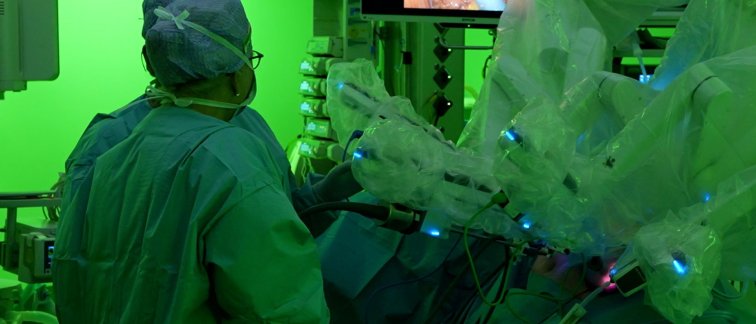Minimally invasive surgery has been shown safe and effective for the complex ‘Whipple’ procedure in patients with tumors of the pancreatic head. These findings come from the international DIPLOMA-2 trial, coordinated by Amsterdam UMC – Cancer Center Amsterdam and Fondazione Poliambulanza Istituto Ospedaliero, and published today in New England Journal of Medicine Evidence.
Patients who underwent minimally invasive pancreatoduodenectomy (‘Whipple’-procedure) experienced similar complication rates as those who underwent traditional open surgery, while recovering faster, spending fewer days in the hospital, and having fewer wound complications and anastomotic leaks.
Equally safe
In a recent study, the researchers reported that minimally invasive surgery is safe for tumors in the left side of the pancreas (the tail). However, surgery on the pancreatic head is substantially more complex because it requires three new internal connections (‘anastomoses’) to be created. In the DIPLOMA-2 trial, 288 patients were randomized 2:1 to minimally invasive or open pancreatoduodenectomy across 14 expert centers in six European countries, including six in the Netherlands. As expected, overall postoperative complications within 90 days were similar in both groups, while hospital stay was on average two days shorter after minimally invasive surgery.
Less invasive, faster recovery
“The surgical robot provides important advantages: enhanced visualization, greater precision, and improved dexterity when resecting the tumor and creating the pancreatic, biliary, and gastric anastomoses,” says Prof. dr. Marc Besselink, Professor of Surgery at Amsterdam UMC - Cancer Center Amsterdam, and principal investigator. “For patients, the minimally invasive approach is less traumatic and has translated into a faster and better recovery.”
Large international collaboration
“Safety is an absolute priority in this complex surgery,” says Dr. Nine de Graaf, medical doctor at Amsterdam UMC and coordinating investigator. “This study was only possible thanks to many years of intensive international collaboration among high-volume expert centers. All participating surgeons had extensive experience with minimally invasive pancreatoduodenectomy. For the first time, we now provide high-level scientific evidence that this approach is safe for tumors in or around the head of the pancreas, when performed in experienced hands.”
Important step toward personalized pancreatic surgery
Co-principal investigator Prof. dr. Mohammad Abu Hilal (Amman) highlights the impact:
“These results mark an important turning point. Minimally invasive surgery can now be considered a fully valid alternative even for the most complex pancreatic operation.”
Oncological outcomes still under investigation
The researchers have already launched the follow-up trial, DIPLOMA-2x2, which will evaluate whether the robotic minimally invasive approach yields comparable oncological outcomes to open surgery in patients with malignant tumors of the pancreatic head.
The results were published today in The New England Journal of Medicine Evidence: Minimally Invasive versus Open Pancreatoduodenectomy for Resectable Neoplasms | NEJM Evidence

